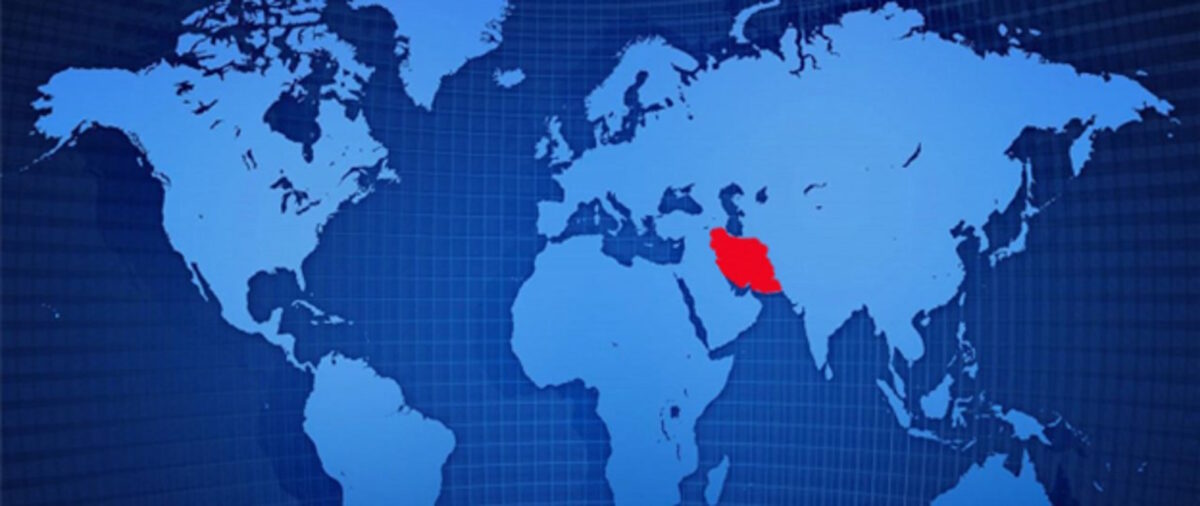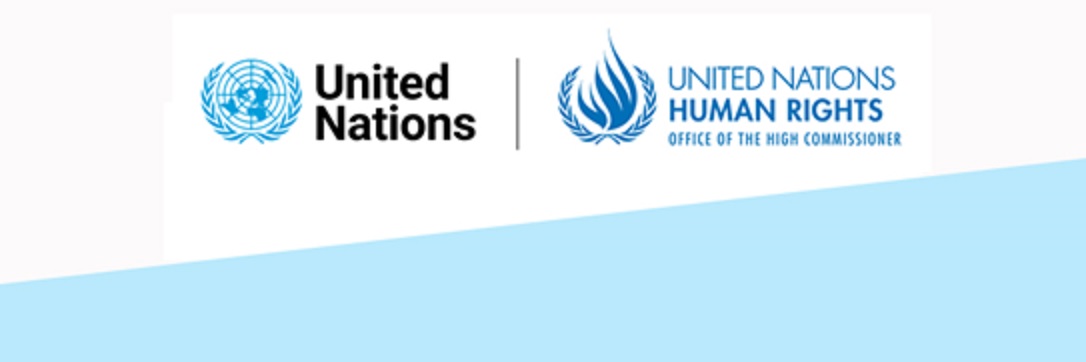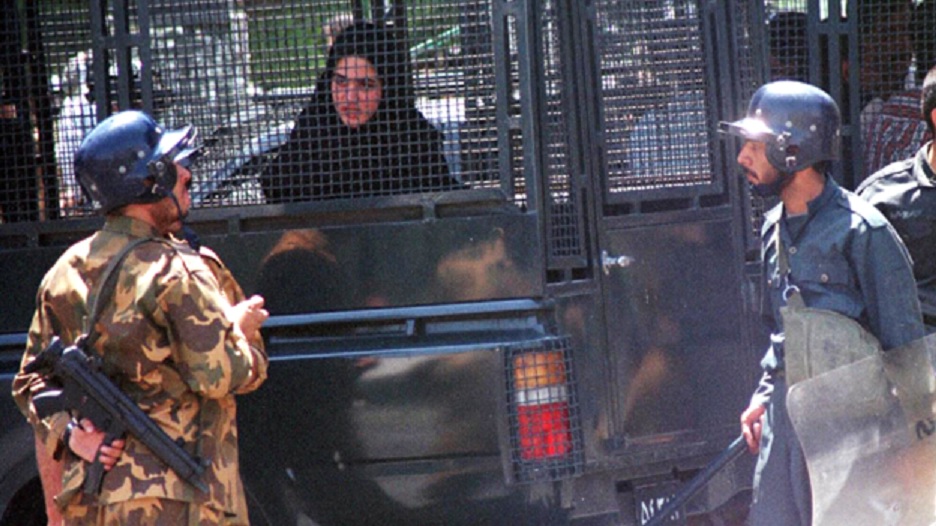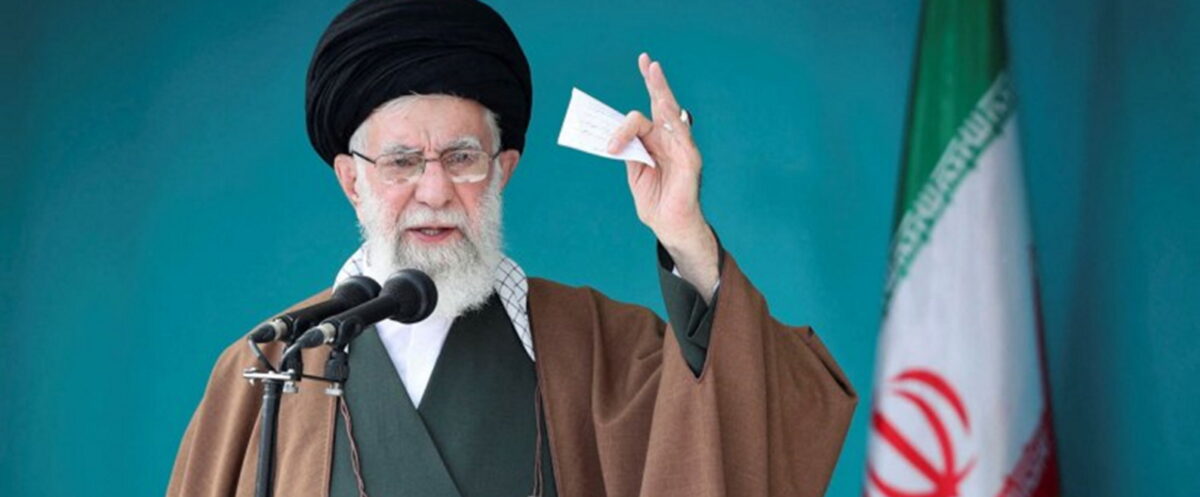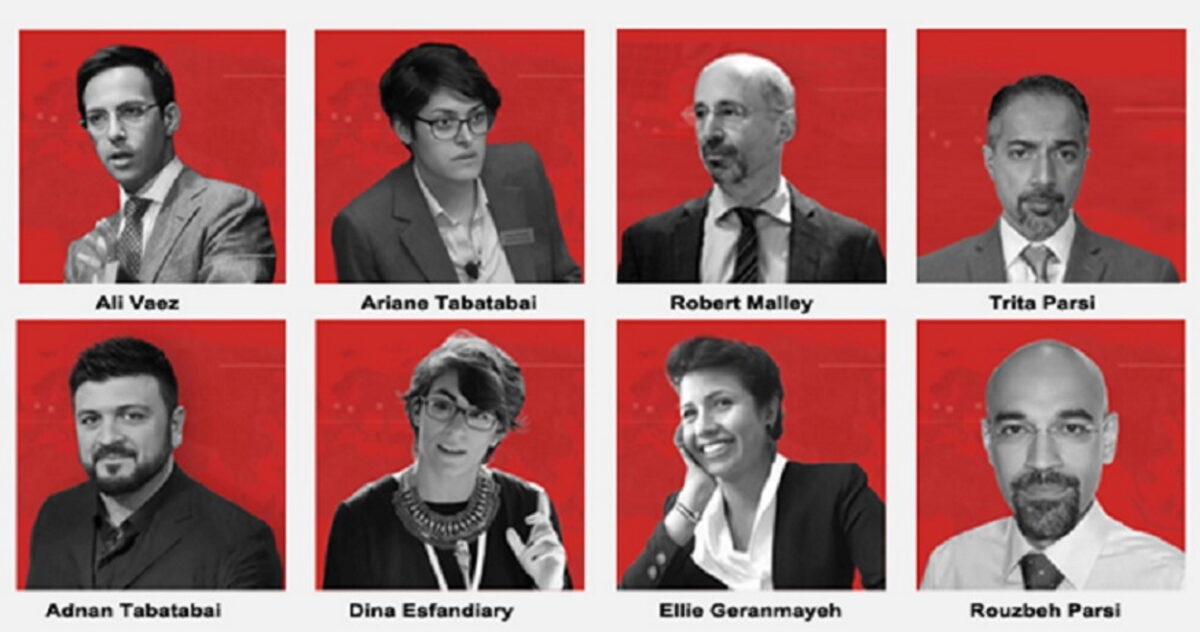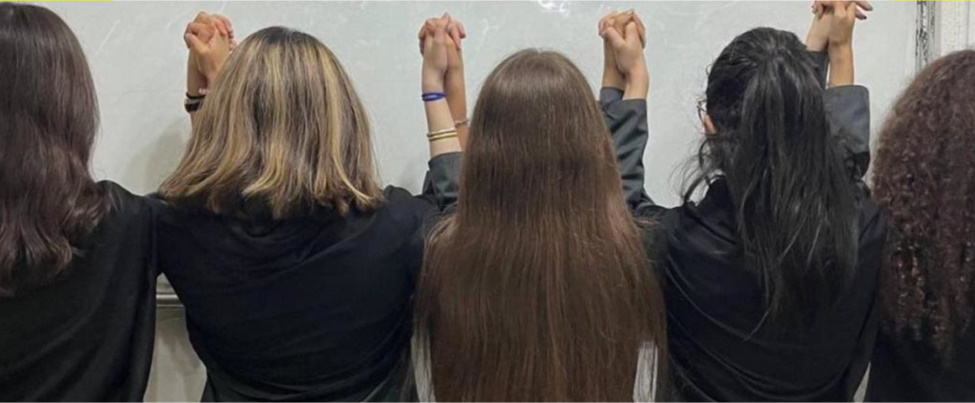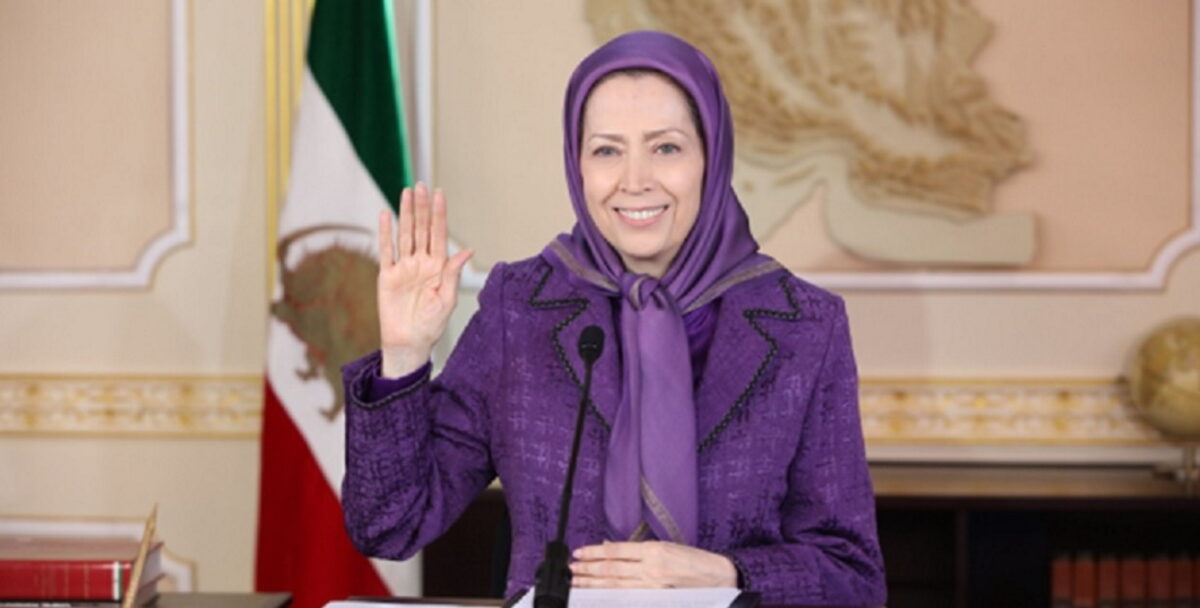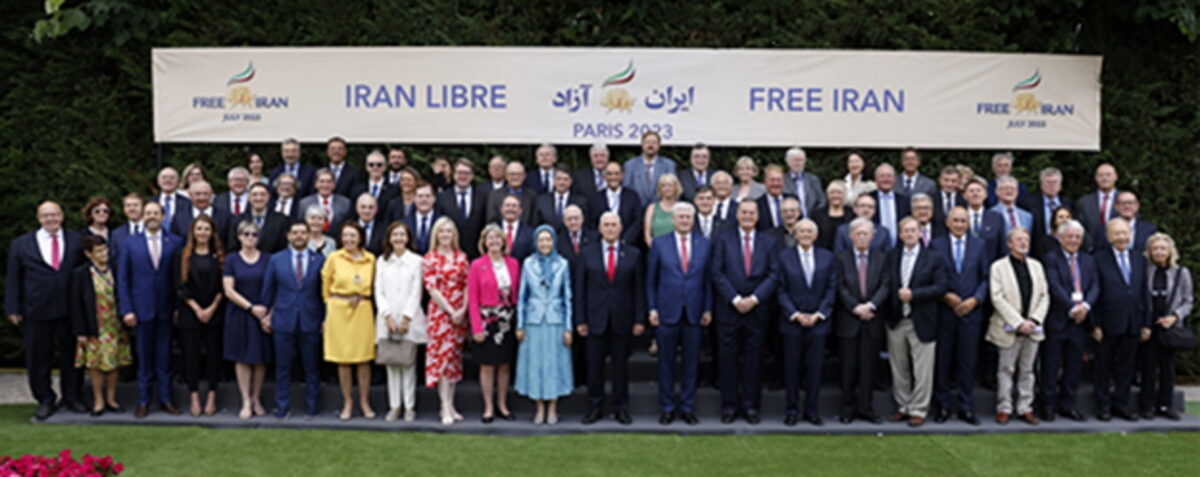Semafor | Jay Solomon | Sept. 29, 2023
THE SCOOP
In the spring of 2014, senior Iranian Foreign Ministry officials initiated a quiet effort to bolster Tehran’s image and positions on global security issues — particularly its nuclear program — by building ties with a network of influential overseas academics and researchers. They called it the Iran Experts Initiative.
The scope and scale of the IEI project has emerged in a large cache of Iranian government correspondence and emails reported for the first time by Semafor and Iran International. The officials, working under the moderate President Hassan Rouhani, congratulated themselves on the impact of the initiative. At least two of the people on the Foreign Ministry’s list were, or became, top aides to Robert Malley, the Biden administration’s special envoy on Iran, who was placed on leave this June following the suspension of his security clearance. A third was hired by the think tank Malley ran just as he left for the State Department.
The documents offer deep and unprecedented new insights into the thinking and inner workings of Iran’s Foreign Ministry at a crucial time in the nuclear diplomacy — even as Tehran’s portrayal of events is questioned, if not flatly denied, by others involved in the IEI. They show how Iran was capable of the kind of influence operations that the U.S. and its allies in the region often conduct.
The emails were obtained and translated by Iran International, a Persian-language television news channel headquartered in London — which was briefly based in Washington due to Iranian government threats — and shared with Semafor. Semafor and Iran International jointly reported on some aspects of the IEI. Both organizations have produced their own stories independently.
The communications reveal the access Rouhani’s diplomats have had to Washington’s and Europe’s policy circles, particularly during the final years of the Obama administration, through this network. One of the German academics in the IEI, according to the emails, offered to ghostwrite op-eds for officials in Tehran. Others would, at times, seek advice from the Foreign Ministry’s staff about attending conferences and hearings in the U.S. and Israel. The IEI participants were prolific writers of op-eds and analyses, and provided insights on television and Twitter, regularly touting the need for a compromise with Tehran on the nuclear issue — a position in line with both the Obama and Rouhani administrations at the time. The emails describe the IEI being initiated following Rouhani’s 2013 election, when he was looking to find an accommodation with the West on the nuclear issue. According to the emails, Iran’s Foreign Ministry, through its in-house think tank — the Institute for Political and International Studies — reached out to ten “core” members for the project, through which it planned to liaise over the next 18 months to aggressively promote the merits of a nuclear deal between Tehran and Washington, which was finalized in July 2015.
“This initiative which we call ‘Iran Experts Initiative (IEI)’ is consisted of a core group of 6-10 distinguished second-generation Iranians who have established affiliations with the leading international think-tanks and academic institutions, mainly in Europe and the US,” Saeed Khatibzadeh, a Berlin-based Iranian diplomat and future Foreign Ministry spokesman, wrote to Mostafa Zahrani, the head of the IPIS think tank in Tehran, on March 5, 2014, as the project gained steam. Their communication veered between English and Farsi — which was translated by Iran International and independently verified by Semafor.
Khatibzadeh wrote again a week later, on March 11, and said that he had gained support for the IEI from two young academics — Ariane Tabatabai and Dina Esfandiary — following a meeting with them in Prague. “We three agreed to be the core group of the IEI.”
Tabatabai currently serves in the Pentagon as the chief of staff for the Assistant Secretary of Defense for Special Operations, a position that requires a U.S. government security clearance. She previously served as a diplomat on Malley’s Iran nuclear negotiating team after the Biden administration took office in 2021. Esfandiary is a senior advisor on the Middle East and North Africa at the International Crisis Group, a think tank that Malley headed from 2018-2021.
Tabatabai and Esfandiary didn’t respond to requests for comment on the IEI. Esfandiary’s current employer, the International Crisis Group, confirmed her participation in the initiative. But the Crisis Group, which promotes conflict resolution globally, said the IEI was an informal network of academics and researchers that wasn’t overseen by the Iranian Foreign Ministry and that it received funding from a European government and some European institutions, which they declined to identify.
The emails discussing the IEI were part of a trove of thousands of Zahrani’s correspondence that Iran International obtained. These include passport copies, resumes, invitations to conferences, airplane tickets, and visa applications. It’s not clear how complete or comprehensive the documents are concerning the IEI.
KNOW MORE
According to the Iranian Foreign Ministry’s communications, the IEI project ramped up after this initial outreach. On May 14, 2014, a kickoff conference was held at the Palais Coburg hotel in Vienna — site of the international nuclear talks. Iranian Foreign Minister Mohammad Javad Zarif was listed as an attendee, according to an email, as well as members of his nuclear negotiating team and eight representatives from Western think tanks. Lower-level Iranian diplomats had initially proposed the meeting be held in Tehran, but Zarif’s deputy advised against it for logistical reasons.
Zarif was fixated during the discussions in Vienna on elevating, or creating, a public figure who could promote Iran’s views on the international stage concerning the nuclear issue, according to the emails. He specifically mentioned an Iranian version of Robert Einhorn, an Obama administration diplomat and expert on nuclear proliferation, who regularly published scholarly pieces on Iran’s nuclear program and appeared at U.S. and European think tank events.
“You were very right by saying that it is a shame that Iran has not its very own Bob Einhorn — someone who can foster attention on Iran’s case the way Einhorn does for the US or the P5+1 for that matter,” Adnan Tabatabai, a German academic who attended the IEI meeting in Vienna, wrote Zarif in English five days after it ended. The P5+1 was the five permanent members of the UN Security Council and Germany, and the diplomatic bloc negotiating the nuclear deal with Tehran. Adnan Tabatabai is not related to Ariane Tabatabai.
Adnan Tabatabai also offered Iran’s Foreign Ministry to ghostwrite pieces on its behalf. “Our suggestion could be that we as a group, work on an essay (2000 words) regarding the ongoing talks,” Tabatabai told Zarif in the same email. “It could, for example, be published under a former official’s name, through the CSR or IPIS — of course after you and your team revised the piece.”
The foreign minister responded four days later, copying Zahrani. Zarif accepted the suggestion and recommended that “these articles or Op-Eds” be published under the names of various Iranian and non-Iranians abroad, as well as former officials. It’s unclear if, or how many, pieces were actually published through this process.
Adnan Tabatabai declined to comment about the IEI, saying the reporting by Iran International and Semafor was “based on falsehoods and factually wrong assumptions.” He also questioned the authenticity of the correspondence with Zarif. Iran International commissioned a forensic examination of the emails, and found no discrepancies in the metadata that would indicate they were inauthentic.
The IEI quickly pushed ahead with one of the initiative’s primary objectives — publishing opinion pieces and analyses in top-tier media in the U.S. and Europe, specifically targeting policy makers. Less than a month after the Vienna gathering, Ali Vaez of the International Crisis Group, a close protégé of Robert Malley’s who is listed as part of the IEI, sent an article on defusing the nuclear crisis to Zahrani of IPIS, ahead of publication. “I look forward to your comments and feedback,” he wrote in Farsi on June 4, 2014, attaching a piece entitled, “The Conceptual Perils of Nuclear Diplomacy with Iran.”
The emails show that the article was shared by Zahrani with Foreign Minister Zarif the day it arrived. It was then published 12 days later in the National Interest, under the title, “False Dilemmas in the Iran Talks,” with some minor wording changes. It’s unclear if Zarif made any fixes as no reply email from him is in the chain. While many think tanks and media outlets have policies against sharing articles before publication, ICG said in a statement to Semafor that it routinely and actively solicits the views of the primary actors involved in a conflict and shares relevant text with policymakers.
Ariane Tabatabai, the current Pentagon official, on at least two occasions checked in with Iran’s Foreign Ministry before attending policy events, according to the emails. She wrote to Zahrani in Farsi on June 27, 2014, to say she’d met Saudi Prince Turki al Faisal — a former ambassador to the U.S. — who expressed interest in working together and invited her to Saudi Arabia. She also said she’d been invited to attend a workshop on Iran’s nuclear program at Ben-Gurion University in Israel. “I am not interested in going, but then I thought maybe it would be better that I go and talk, rather than an Israeli like Emily Landau who goes and disseminates disinformation. I would like to ask your opinion too and see if you think I should accept the invitation and go.”
Zahrani replied the same day: “All things considered, it seems Saudi Arabia is a good case, but the second case [Israel] is better to be avoided. Thanks.” Tabatabai answered a few hours later: “Thank you very much for your advice. I will take action regarding Saudi Arabia and will keep you updated on the progress.” There’s no evidence Tabatabai went to the conference in Israel, though her books and research reports suggest she’s interviewed a number of senior Israeli officials.
Ariane Tabatabai told Zahrani that she was slated to give testimony before the U.S. Congress on the nuclear deal. On July 10, 2014, she wrote that she had been asked to appear before multiple congressional committees alongside two Harvard academics — Gary Samore and William Tobey — whom she viewed as hawkish on Iran. “I will bother you in the coming days. It will be a little difficult since both Will and Gary do not have favorable views on Iran,” she wrote.
Tabatabai shared a link with Zahrani to an article she’d published in the Boston Globe that outlined the “Five Myths about Iran’s Nuclear Program.” The piece explained why Iran needs nuclear power and highlighted a fatwa, or religious edict, that Iran’s Supreme Leader Ayatollah Khamenei allegedly issued forbidding the development of nuclear weapons as un-Islamic. Some Western officials have questioned the legitimacy of the fatwa.
THE VIEW FROM TEHRAN
The Iranian officials behind the IEI — Zahrani and Khatibzadeh — boasted to their superiors in internal emails about the initiative’s successes. They tracked how often the academics in the IEI wrote or were cited in the media during the week after a preliminary nuclear agreement was reached between Tehran and world powers on April 2, 2015 in Lausanne, Switzerland. The media data was shared with others in the Iranian Foreign Ministry in Tehran.
“Following our phone conversation, I attached here for your review only a few of the most significant works some of our friends published during the week after the Lausanne framework agreement was reached,” Khatibzadeh wrote in Farsi. “We were in constant contact and worked vigorously around the clock. Some friends performed as resourceful as a media outlet all by themselves.”
On April 14, 2015, Khatibzadeh emailed Zahrani, who then forwarded the message to Zarif and one of the foreign minister’s deputies on the nuclear negotiating team, Majid Takht-Ravanchi. Khatibzadeh attached 10 separate Word documents to the email, each referencing the media footprint of each IEI academic. These included Ariane Tabatabai and Ali Vaez, who have both worked closely with Malley over the past decade, and Dina Esfandiary, who was hired during his time at ICG. (Malley publicly welcomed Esfandiary to his team at ICG on Twitter in January of 2021, but stepped down to join Biden’s State Department before she started.)
Khatibzadeh, the future Foreign Ministry spokesman boasted in the email: “These are in addition to hundreds of tweets, posts and…on the internet that were definitely unique and trend-sending in their own right. It should be noted that these works were not only published in English, but also in several other international languages.”
The list shared by Khatibzadeh showed that in one week, Ariane Tabatabai published four articles, including in Foreign Policy, and gave interviews to the Huffington Post and Iran’s Fars News agency, which is linked to the powerful Islamic Revolutionary Guard Corps, mostly supporting Tehran’s views on the nuclear talks. In an article for the National Interest co-written with Dina Esfandiary, they argued that Iran was “too powerful” to be contained and that “Tehran doesn’t need any agreement to be empowered and to strengthen its foothold in the region.”
Ali Vaez was also extremely prolific in his media outreach. The ICG analyst was cited in virtually all of the U.S.’s major newspapers, including the New York Times, Wall Street Journal, Washington Post and Los Angeles Times, from the initiation of the IEI in March 2014 to the finalization of the Iran nuclear deal in July 2015.
Iran’s Foreign Ministry, the IPIS think tank, and Zarif, Zahrani, and Khatibzadeh didn’t respond to requests for comment.
JAY’S VIEW
Covering Iran, either as an academic or a journalist, is a minefield. Access to both the country and Iranian officials is tightly controlled. And even opportunities come with serious caveats. During my visits to Iran as a reporter, I needed to provide my questions and story ideas to the Foreign Ministry ahead of arrival and hire a government-appointed fixer. This individual provided translations, but also clearly monitored my movements and meetings. I assumed Iran’s intelligence services were closely tracking me.
Tehran also aggressively pushes its information operations overseas, sometimes with success, sometimes not. An Iranian academic and permanent U.S. resident who used to contact me with his insights on Tehran’s nuclear program, a man named Kaveh Afrasiabi, was arrested in a Boston suburb in 2021 for allegedly working as an unregistered agent for the Iranian regime. He’s allowed to return to Tehran as part of the prisoner-swap agreement reached this month between the Biden administration and Iran, though Afrasiabi said he plans to stay in the U.S.
UPDATE: Afrasiabi, whose case was in the pre-trial stage before he was pardoned, contacted me after the publication of this story and denied ever acting as an agent advancing Iran’s interests. “I strongly object to such unfair and false characterizations that have seriously marred my reputation,” he wrote in an email. “My part-time international affairs consulting for Iran’s mission under the UN guidelines had absolutely no bearing on my wealth of books and articles…These include numerous articles clearly at odds with and critical of Iran.” He added: “I was a national security asset to US, and never a threat.”
The Iranian regime is also factionalized, and navigating these fissures is hazardous for diplomats and journalists. The Iran Experts Initiative was born from a Rouhani administration eager to end Tehran’s pariah status following eight years of Mahmoud Ahmadinejad’s presidency in which he courted Holocaust denial and promoted the eradication of Israel. Rouhani’s Foreign Minister Javad Zarif had developed extensive ties to Western politicians and academics during his earlier tenure as Tehran’s ambassador to the United Nations. Participants in the IEI, as well as most Western governments, saw Rouhani’s tenure and Zarif’s ascendence as an opening to try and integrate the Islamic Republic into the global economy and end the nuclear crisis. The Obama administration used both overt and covert channels to do this.
But Rouhani never represented the Islamic Republic’s more radical or hardline face, particularly the Revolutionary Guards, or IRGC. And the election in 2021 of President Ebrahim Raisi, who’s been sanctioned by the U.S. for human rights abuses, largely closed the window on these channels. In fact, Raisi’s government has turned on Robert Malley and some IEI members in recent weeks, accusing them in state media of seeking to incite racial and ethnic unrest in the country. The Tehran Times, an English-language media outlet associated with Raisi’s office, has reveled in Malley’s suspension: It’s claimed in a string of columns that the diplomat’s disciplinary action is tied to the very types of outreach to Iran he and some of his colleagues pursued.
“Malley’s suspicious interactions with his aides of Iranian descent contributed to his downfall,” the Tehran Times wrote in a column published last month. The State Department has declined to comment on the reasons behind his suspension. The FBI is also investigating Malley, suggesting the diplomat’s actions may be more serious than just the mishandling of classified information.
Malley is hardly the first U.S. official to be ensnared in the machinations of the Islamic Republic. The opacity of Tehran’s system and the expansive work of its intelligence services can mask the government’s true intentions. The IEI emails offer a unique look into the Iranian system.
ROOM FOR DISAGREEMENT
None of Malley’s associates whom Iranian diplomats cited as being part of the Iran Experts Initiative spoke directly to Semafor. But Vaez’s and Esfandiary’s current employer, the International Crisis Group, has a significantly different understanding of the IEI and Tehran’s role in it.
Elissa Jobson, Crisis Group’s chief of advocacy, said the IEI was an “informal platform” that gave researchers from different organizations an opportunity to meet with IPIS and Iranian officials, and that it was supported financially by European institutions and one European government. She declined to name them.
“To spell it out a bit more, it was a means to facilitate research discussions and not a more formal entity where participants could be directed by anyone,” she said. “The fact that participants were from a host of different think tanks demonstrates that it was merely an informal platform.” ICG also notes that all the work its staff publishes is vetted and agreed upon in-house; they dispute that Iran — or any government — could have directed any members of their team to take a position at odds with the organization’s official view.
Another European think tank, the European Council on Foreign Relations, confirmed that one of its senior fellows, Ellie Geranmayeh, also took part in the Iran Experts Initiative. An ECFR spokesman said a European government backed the IEI, but didn’t identify it, and stressed that that the think tank always covers the “core costs” of its staff’s research trips. “As part of its efforts to inform European policy, ECFR regularly engages with experts and think tanks across the world, including through research visits and workshops,” the spokesman said.
Malley didn’t respond to requests for comment. Both the State Department and Pentagon declined to comment on the substance of the correspondence related to the IEI, but said they support Ariane Tabatabai and the vetting process involved in the approval of her security clearance. “Dr. Tabatabai was thoroughly and properly vetted as a condition of her employment with the Department of Defense. We are honored to have her serve,” the Pentagon said in a statement.
https://www.semafor.com/article/09/25/2023/inside-irans-influence-operation



